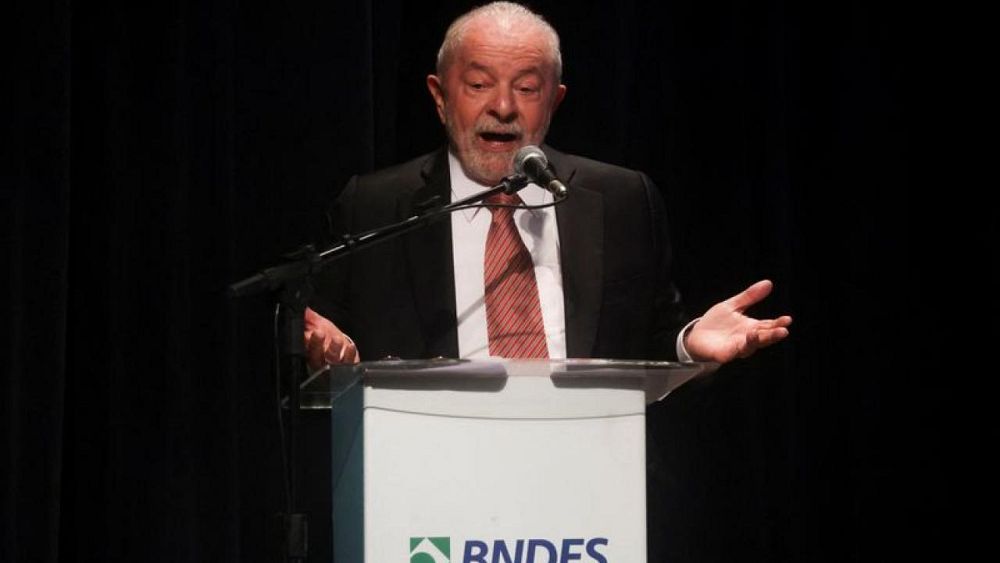Analysis-Brazil central bank autonomy becomes political punching bag for Lula


By Marcela Ayres and Bernardo Caram
BRASILIA – Brazil’s central bank newfound independence that was designed to shield it from politics has turned it into a convenient punching bag for the new government that can use it to fire up its leftist base and blame it for economic woes.
Since his Jan. 1 inauguration President Luiz Inacio Lula da Silva has repeatedly attacked the bank, led by respected economist and financial markets executive Roberto Campos Neto, calling its interest rates excessively high and “shameful” and blaming them for stunting growth.
Further to his left, socialist leader Guilherme Boulos called Campos Neto an agent left in office by Lula’s far-right predecessor Jair Bolsonaro to “boycott” the economy.
With the bank’s autonomy established by law under Bolsonaro in 2021, its board of directors is no longer changed at the same time when new governments take office, so Campos Neto’s term as governor runs until the end of 2024.
Two of his close associates told Reuters that Campos Neto was not considering leaving the bank despite government pressure.
They stressed, on condition of anonymity, that Campos Neto considered the central bank autonomy a crucial institutional gain, and that he played a role in safeguarding it by staying on until the end of his mandate.
Political observers attribute Lula’s irritation with the bank to a mix of slowing economic growth and high inflation that could threaten his government’s re-election prospects in 2026.
But economists think Lula is putting on an act and see no real danger of him curbing the bank’s independence.
“He needs to appease his political base to negotiate more freely later with the central bank,” said André Perfeito, chief economist at brokerage Necton.
The bank’s benchmark Selic rate is now at 13.75%, and its monetary policy committee has not ruled out further hikes to bring down inflation, which last was 5.87% in mid-January, still far from this year’s 3.25% official target.
The committee kept the rate unchanged last week in its first policy decision under the new government, signaling rates would stay high for longer than markets expect due to fiscal risks under Lula.
Soon after taking office, Lula began criticizing the country’s official inflation targets a too low. That spurred a rise in longer-term bond yields and weighed on the real, with the Brazilian currency underperforming its emerging market rivals.
Felipe Salles, chief economist of C6 Bank, sees small short-term risks for the independence due to the frictions, but said the government’s actual objective could be raising inflation goals.
The official targets are defined by the National Monetary Council, currently comprised of the Finance Minister, Planning Minister, and central bank governor, meaning the federal government has two of the three votes in the committee.
Lula has already argued that the country should pursue its own inflation pattern rather than follow what he called the “European” model, but government officials have played down any possibilities of change.
The mandate of Campos Neto and his current eight directors will expire at different times between now and 2025, and it will be up to Lula to appoint all the replacements, starting with the Monetary Policy and Supervision directors, whose mandates expire by the end of this month.
Lula is expected to appoint a person aligned with his vision to the Monetary Policy position, which plays a major role in monetary policy decisions and oversees the foreign exchange and interest rate desks.
But even if Lula packs the board with people fully aligned with his ideas, Campos Neto and his current directors will retain a majority in the rate-setting committee until the end of the governor’s mandate.
Former central bank director Alexandre Schwartsman warned that Lula could indeed ignore Campos Neto’s suggestions for rate-setting panel replacements or raise inflation targets.
“If this is the path followed, make no mistake about it, inflation expectations would rise,” Schwartsman said.
Former central bank chief Henrique Meirelles, who headed the institution in Lula’s first term, suggested the president’s talk of the bank’s independence was counterproductive.
“The less he talks about the subject, the better one can control expectations and lower interest rates,” Meirelles said.
By Marcela Ayres and Bernardo Caram BRASILIA – Brazil’s central bank newfound independence that was designed to shield it from politics has turned it into a convenient punching bag for the new government that can use it to fire up its leftist base and blame it for economic woes. Since his Jan. 1 inauguration President…
